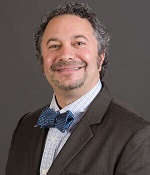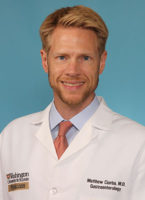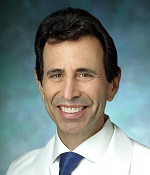
Module IV: Gastroenterology - The Crossroads of Health
October 16, 2020 to October 18, 2020
Module IV: Gastroenterology - The Crossroads of Health
This module focuses on comprehensive metabolic, functional, and nutritional approaches to gastrointestinal disorders. Findings indicate that 70 percent of the immune system is located in the GI tract, which is why the role of optimal gut function is critical for proper immune system regulation. Many other neurotransmitters and nutrients are also produced in the gut such as serotonin and melatonin. Many disorders have a link to GI tract and microbiome. This module explores the latest scientific advances in various common gut disorders such SIBO, IBD, eosinophilic esophagitis, MCAS, GERD, liver disorders, and many more. Attend and learn the latest research and a system’s biology approach and new tools to help your patients with these common disorders.
Any technical or CME related questions should be sent to [email protected]
Should you have any questions about the content or faculty please email [email protected].
The Module schedule and faculty disclosures can be found under "Additional Information" below.
To Begin, select "Start"
Target Audience
This course is designed for physicians (internal medicine, family medicine, endocrinologists, general medicine, and OB-GYN), pharmacists, physician assistants, nurses, nurse practitioners, and other healthcare professionals interested in learning about the advancements of preventative and anti-aging medicine.
Learning Objectives
Upon completion of this module, the participants will:
- Review the various functions of the GI tract as they relate to barrier, motility, and immune function
- Analyze the importance of the gastrointestinal tract in relation to autoimmunity
- Identify how biomes communicate
- Discuss IBD and other immune disorders of the GI tract
- Review the data on the link between post-infectious IBS and SIBO
- Review causes and treatment to small intestinal fungal overgrowth
- Evaluate the role of diet and antibiotics in the management of gastrointestinal dysfunction
- Discuss the benefits of pre- and probiotics, pre- and probiotic foods and fermented foods
- Discuss the importance of microbial diversity in the gut
- Recall common gastrointestinal and immune system complaints through the DIG-IN acronym
- Review advanced laboratory testing options for mal-absorption, intestinal permeability, and nutritional assessment
- Explain the Gut/Brain/Microbiome connection
- Discuss natural interventions for GERD/GORD
- Review the exocrine function with bile acids, digestive enzymes, and sterolbiome
Additional Information
| Attachment | Size |
|---|---|
| 201.92 KB | |
| 166.64 KB |
 | Thomas G. Guilliams, PhDDr. Guilliams earned his doctorate in molecular immunology from the Medical College of Wisconsin in Milwaukee. For the past two decades, he has spent his time investigating the mechanisms and actions of lifestyle and nutrient-based therapies, and is an expert in the therapeutic uses of dietary supplements. Tom serves as an adjunct assistant professor at the University of Wisconsin- School of Pharmacy and was the VP of Science for Ortho Molecular Products for 24 year (he now serves them as a consultant). Since 2014 he has been writing a series of teaching manuals (Road maps) that outline and evaluate the evidence for the principles and protocols that are fundamental to the functional and integrative medical community. He is the founder and director of the Point Institute, an independent research and publishing organization that facilitates the distribution of his many publications. A frequent guest-speaker, Dr. Guilliams provides training to a variety of health care disciplines in the use of lifestyle and natural medicines. He lives in the woods outside of Stevens Point, Wisconsin with his wife and children. |
 | Gerard Clarke, PhDDr. Clarke is a lecturer in the Department of Psychiatry and Neurobehavioural Science and a Principal Investigator in APC Microbiome Ireland at University College Cork. His research interests include the impact of the gut microbiome on brain and behaviour across the life span, microbial regulation of tryptophan metabolism and translational biomarkers of stress-related neuropsychiatric disorders. With over 130 publications and a H-Index of 60, he was included in Clarivate Analytics Web of Science Group 2019 Highly Cited Researchers list. On Expertscape, he is listed at number 13 in the list of worldwide experts in the ‘Microbiota’ and at 39 in ‘Biodiversity’. |
 | Robert S. Brown, Jr., MD, MPHDr. Brown has a clinical research program focused on viral hepatitis, alcohol-related liver disease, and liver transplantation. He received his B.A. from Harvard College, M.D. from New York University, and his M.P.H. from the Graduate School of Public Health, University of California, Berkeley. He completed his internship in medicine at Beth Israel Hospital, Harvard Medical School in Boston, and a fellowship in gastroenterology and hepatology at the University of California, San Francisco. He has co-authored more than 200 peer-reviewed articles and mentored many trainees and junior faculty. He is the incoming Editor-in-Chief of Liver Transplantation, an Associate Editor for Hepatology, and published a book, Common Liver Diseases and Transplantation: An Algorithmic Approach to Work-up and Management. Dr. Brown is the recipient of a Young Investigator Award from the American Society of Transplant Physicians, the Senior Attending Teacher Award from Columbia University Medical Center, and the American Liver Foundation New York Chapter's Physician of the Year. |
 | Leonard B. Weinstock, MDDr. Weinstock is Board Certified in Gastroenterology and Internal Medicine. He is president of Specialists in Gastroenterology and the Advanced Endoscopy Center. He is an Associate Professor of Clinical Medicine and Surgery at Washington University School of Medicine. He is a primary investigator at the Sundance Research Center. Dr. Weinstock received a BA Magna Cum Laude from University of Vermont and the medical degree from University of Rochester School of Medicine. He completed his postgraduate training and was chief resident in Internal Medicine at Rochester General Hospital. His Gastroenterology Fellowship was performed at Washington University School of Medicine. Dr. Weinstock is an active lecturer and has published more than 135 articles, abstracts, editorials, book chapters, and poster presentations at national meetings. He is currently researching the role of mast cell activation syndrome, small intestinal bacterial overgrowth, restless legs syndrome, and rosacea. Dr. Weinstock has extensive expertise with low dose naltrexone (LDN) in multiple inflammatory and autoimmune conditions. His research has been presented in national and international conferences and online interviews. Further information is available at www.gidoctor.net. |
 | John Clarke, MDDr. John Clarke recently joined the Gastroenterology & Hepatology Division at Stanford University as Director of the Esophageal Program. He previously spent 17 years in Baltimore, including 9 years on the faculty at Johns Hopkins University where he was an Associate Professor and at various times Director of Esophageal Motility, Director of Gastrointestinal Motility, Clinical Director of the Johns Hopkins Center for Neurogastroenterology, and Clinical Director of the Gastroenterology & Hepatology Division at Johns Hopkins Bayview Medical Center. His career has combined research, education and clinical care. His clinical areas of expertise include achalasia, dysphagia, eosinophilic esophagitis, esophageal dysmotility, gastroesophageal reflux disease, gastroparesis, GI-manifestations of scleroderma and GI dysmotility. While at Johns Hopkins University, he was inducted into The Miller-Coulson Academy for Clinical Excellence, an institutional honor society for master clinicians at the time limited to 50 members across the entire university. From an education standpoint, he has lectured in over a dozen countries, authored over 25 textbook chapters and serves on the educational affairs committee of the American College of Gastroenterology. He has also won several major teaching awards, including The Johns Hopkins University Alumni Association Award for Excellence in Teaching, given to one faculty member per year in the entire School of Medicine. His research has focused on optimization and characterization of diagnostic studies to evaluate motility disorders, as well the relationship between therapeutic endoscopic techniques and treatment of motility disorders. He was an investigator on the NIH Gastroparesis Consortium and is also a former recipient of the AGA Don Castell Award. |
 | Matthew Ciorba, MDAssociate Professor of Medicine Director, Inflammatory Bowel Diseases Program Director, IBD Research Associate Director, GI Fellowship Program and T32 Research |
 | Steven Sandberg-Lewis, ND, DHANPDr. Sandberg-Lewis has been in practice for over 40 years and has taught gastroenterology at the National University of Natural Medicine (NUNM) in Portland, Oregon for 22 years. He practices at Hive Mind Medicine in Portland, Oregon and is a frequent presenter at educational seminars internationally, writes a column entitled Functional Gastroenterology Bolus for the Townsend Letter and wrote the textbook entitled Functional Gastroenterology: Assessing and Addressing the Causes of Functional GI Disorders (2017, www.amazon.com) He and his family have also created a comic book explanation of SIBO entitled Nuthin’ Funnies about SIBO. Sandberg-Lewis is the focus of numerous podcasts, interviews and webinars. Areas of special focus include irritable bowel syndrome, SIBO, GERD, hiatal hernia, inflammatory bowel disease (including microscopic colitis), biliary dyskinesia, gastroparesis and unrelenting nausea. He is currently working on a book about reflux and one on IBD. He also likes walking, cycling, yoga and kayaking. |
 | Gerard E. Mullin, MDDr. Mullin is an associate professor of medicine at The Johns Hopkins Hospital. He is board-certified in internal medicine, gastroenterology, integrative medicine, functional medicine and nutrition. Nationally and internationally renowned for his work in integrative gastroenterology and nutrition, Dr. Mullin has more than 20 years of clinical experience in the field of integrative gastroenterology and earned his master’s degree in nutrition while in practice. He is an associate editor of several nutrition and integrative medicine journals. Dr. Mullin was selected by Dr. Andrew Weil to serve as a senior editor for the first book for physicians on integrative gastroenterology by Oxford Press, which was released in May of 2011. He also is former president of the Maryland and Long-Island Societies of Parenteral and Enteral Nutrition In 2009 he was named by the American Dietetic Association’s honorary member of the year. Dr. Mullin was the youngest person to receive an Honorary membership from the American Dietetic Association in 2009. He also received the Grace A. Goldsmith award presented by the American College of Nutrition in November 2011. This special award acknowledges a scientist who is under the age of 50 years, for significant achievements in the field of nutrition. He is a founding member of the American Board of Integrative Medicine and is board-certified in internal medicine, gastroenterology and nutrition. Dr. Mullin also serves on the editorial board of numerous journals for gastroenterology, nutrition and integrative medicine. |
 | Jill Carnahan, MD, ABIHM, ABoIM, IFMCPDr. Carnahan completed her residency at the University of Illinois Program in Family Medicine at Methodist Medical Center. In 2006 she was voted by faculty to receive the Resident Teacher of the Year award and elected to Central Illinois 40 Leaders Under 40. She received her medical degree from Loyola University Stritch School of Medicine in Chicago and her Bachelor of Science degree in Bio-Engineering at the University of Illinois in Champaign-Urbana. She is dually board-certified in Family Medicine (ABFM) and Integrative Holistic Medicine (ABIHM). Dr. Jill was also part of the first 100+ health-care practitioners to be certified in Functional Medicine through the Institute of Functional Medicine (IFMCP). In 2008, Dr. Carnahan’s vision for health and healing resulted in the creation of Methodist Center for Integrative Medicine in Peoria, IL where she served as the Medical Director for 2 years. In 2010, she founded Flatiron Functional Medicine in Boulder, Colorado where she partnered in functional medicine with medical partner, Dr. Robert Rountree. She recently opened a brand new medical clinic with a broad range of services in Louisville, Colorado. Dr. Jill is also 15-year survivor of breast cancer and Crohn’s disease and passionate about teaching patients how to “live well” and thrive in the midst of complex and chronic illness. She is also committed to teaching other physicians how to address underlying cause of illness rather than just treating symptoms through the principles of functional medicine. She is a prolific writer, speaker, and loves to infuse others with her passion for health and healing! |
 | Liz Lipski, PhD, CCN, CNS, CHNLiz Lipski is currently a Professor and the Director of the Academic Development for the Nutrition programs in Clinical Nutrition at Maryland University of Integrative Health. Dr. Lipski holds a PhD in Clinical Nutrition, is a Fellow of the American College of Nutrition (FACN) and holds two board certifications in clinical nutrition (CNS, and BCHN) and one in functional medicine (IFMCP). She is on faculty for The Institute for Functional Medicine, and the Metabolic Medicine Institute fellowship program. She currently sits on scientific advisory boards for uBiome, the Certified International Health Coaches, and the Autism Hope Alliance. She is a consultant for Conversion Labs. Dr. Lipski has been a co-author in peer-reviewed papers and is the author of several books: Digestive Wellness, Digestive Wellness for Children, and Leaky Gut Syndrome. She is the founder of InnovativeHealing.com, where she offers webinar-based Mentoring Programs and Advanced Nutrition Forums for nutritionists, dietitians, and other clinicians. She lives in Oregon, with her husband and spends free time gardening, camping, and spending as much time as possible with her adult children and grand-children. |
 | James LaValle, RPh, CCNDr. LaValle is a nationally recognized clinical pharmacist, author, board-certified clinical nutritionist, and founder of Metabolic Code Enterprises, Inc.: a web platform and practice solution enterprise, which includes the unique & highly effective Metabolic Code Protocol--a preventive approach to integrative health care. LaValle additionally founded Practices at Progressive Medical Center in Orange County, California; in 2001, he founded and operated LaValle Metabolic Institute: an interdisciplinary medicine facility in Cincinnati where he served thousands of patients using his metabolic model for health for 15 years. 15 years ago, LaValle founded Integrative Health Resources, which is focused as a natural products industry consulting company. LaValle has 27 years of experience integrating natural therapies into various medical and business models and is likely best known for his expertise surrounding natural therapeutics applications, drug/nutrient depletion issues, and uncovering the underlying metabolic issues that keep people from feeling healthy & vital. As such, he has written hundreds of articles for a variety of industry journals and publications and has lectured globally for thousands of healthcare professionals and consumer audiences on these topics. LaValle was a founding author of the NHI on Demand database and spearheaded the Lexi Comp databases relating to natural therapeutics. He has authored 16 e-books and 20 books, including the most recently released, "Your Blood Never Lies," as well as his best seller, "Cracking the Metabolic Code," along with "Smart Medicine for Healthier Living," "Nutritional Cost of Drugs," and "The Cox-2 Connection." LaValle was named one of the “50 Most Influential Pharmacists” by American Druggist magazine, and was one of only nine Americans selected to participate in the inaugural Dietary Supplement Educational Alliance & Dietary Supplement Information Bureau. |
 | Pamela W. Smith, MD, MPH, MSDr. Smith spent her first twenty years of practice as an emergency room physician with the Detroit Medical Center and then the next twenty years as an Anti-Aging/Functional Medicine specialist. She is a diplomat of the Board of the American Academy of Anti-Aging Physicians and is an internationally known speaker and author on the subject of Metabolic, Anti-Aging and Functional Medicine. She also holds a Master’s in Public Health Degree along with a Master’s Degree in Metabolic and Nutritional Medicine. She has been featured on CNN, PBS, and many other television networks, has been interviewed in numerous consumer magazines, and has hosted two of her own radio shows. She is a regular contributor for Fox News Radio. Dr. Smith is currently the Director of the Center for Personalized Medicine and the founder of The Fellowship in Anti-Aging, Regenerative, and Functional Medicine. Dr. Smith is also the co-director of the Master’s Program in Metabolic and Nutritional Medicine at the Morsani College of Medicine, University of South Florida.
|
This activity has been planned and implemented in accordance with the accreditation requirements and policies of the Accreditation Council for Continuing Medical Education (ACCME) through the joint providership of The George Washington University School of Medicine and Health Sciences and the American Academy of Anti Aging Medicine. The George Washington University School of Medicine and Health Sciences is accredited by the ACCME to provide continuing medical education for physicians.
The George Washington University School of Medicine and Health Sciences designates this live activity for a maximum of 24 AMA PRA Category 1 Credit(s) ™. Physicians should claim only the credit commensurate with the extent of their participation in the activity.
Available Credit
- 24.00 AMA PRA Category 1 Credit™The George Washington University School of Medicine and Health Sciences is accredited by the Accreditation Council for Continuing Medical Education (ACCME) to provide continuing medical education for physicians.
- 24.00 Completion
Required Hardware/software
Technical Requirements:
- High-speed internet connection
- Browsers:
- This educational activity has been tested in the latest versions of Internet Explorer, Edge, Firefox, Safari, and Chrome browsers on Windows or Macintosh computers.
- Safari, Firefox, or Chrome browsers are recommended for the best results.
- Internet Explorer browser is not recommended. If you must use Internet Explorer, please update to version 11, which is the only version supported by Microsoft at this writing.
- The latest version of Adobe Reader to view PDF documents.

 Facebook
Facebook X
X LinkedIn
LinkedIn Forward
Forward